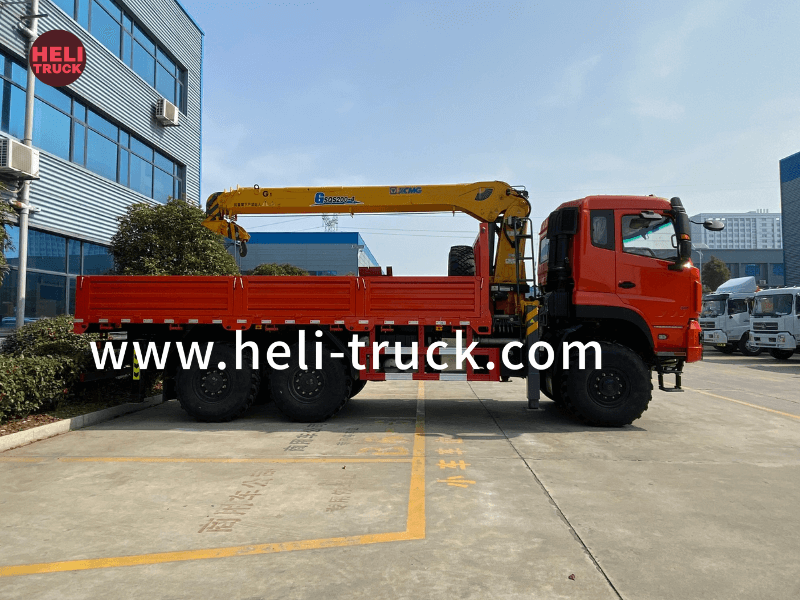Maximizing Efficiency The Role of Garbage Compactor Trucks in Waste Management
Introduction Garbage compactor trucks play a crucial role in modern waste management systems, helping to collect, transport, and dispose of solid waste efficiently. These specialized vehicles are equipped with compactors that compress garbage to maximize the amount of waste that can be transported in each trip. In this article, we will explore the various factors that contribute to the efficiency of garbage compactor trucks and the importance of optimizing their performance in the context of sustainable waste management practices. 1. Evolution of Garbage Compactor Trucks Garbage compactor trucks have come a long way since their inception. Originally introduced as basic collection vehicles with limited capacity, these trucks have evolved to become sophisticated machines capable of handling large volumes of waste. The development of hydraulic compactors has been a significant advancement in the efficiency of garbage compactor trucks, enabling them to compress garbage effectively and reduce the number of trips required for waste collection. 2. Types of Garbage Compactor Trucks There are several types of garbage compactor trucks available, each designed for specific waste management needs. Rear-loading compactor trucks are commonly used for residential waste collection, while front-loading and side-loading compactor trucks are preferred for commercial and industrial applications. The choice of compactor truck type depends on factors such as the volume of waste generated, the type of waste material, and the collection route requirements. 3. Factors Affecting Efficiency Efficiency is a key consideration when it comes to garbage compactor trucks, as it directly impacts the cost and environmental footprint of waste management operations. Several factors influence the efficiency of these vehicles, including: – Compaction Ratio: The compaction ratio of a garbage compactor truck determines how effectively it can compress waste. A higher compaction ratio means that more waste can be accommodated in each load, reducing the number of trips required for waste collection and transportation. – Engine Power: The engine power of a garbage compactor truck is crucial for its performance, especially when operating in challenging terrains or under heavy load conditions. A powerful engine ensures that the truck can maintain speed and efficiency during waste collection and transportation. – Hydraulic System: The hydraulic system of a garbage compactor truck is responsible for operating the compactor mechanism. A well-maintained hydraulic system is essential for smooth and efficient waste compaction, preventing breakdowns and downtime that can impact operational efficiency. – Waste Segregation: Proper waste segregation at the source is essential for optimizing the efficiency of garbage compactor trucks. Segregating New refuse compactor trucks into different categories such as recyclables, organic waste, and non-recyclable materials allows for more efficient collection and disposal processes, reducing the overall volume of waste that needs to be transported. 4. Best Practices for Maximizing Efficiency To maximize the efficiency of garbage compactor trucks, waste management companies and municipalities can implement the following best practices: – Regular Maintenance: Scheduled maintenance and inspections are essential for ensuring the optimal performance of garbage compactor trucks. Regular servicing of engine components, hydraulic systems, and compactor mechanisms can prevent breakdowns and prolong the lifespan of the vehicles. – Route Optimization: Efficient route planning can significantly reduce the time and fuel consumption of garbage compactor trucks. By optimizing collection routes based on factors such as waste generation rates, traffic conditions, and distance, waste management operations can minimize travel time and maximize efficiency. – Staff Training: Proper training of drivers and waste collection personnel is crucial for ensuring the safe and efficient operation of garbage compactor trucks. Training programs on vehicle operation, safety protocols, and waste handling practices can improve operational efficiency and reduce the risk of accidents or injuries. – Technology Integration: The integration of technology such as GPS tracking systems and onboard sensors can enhance the efficiency of garbage compactor trucks. Real-time monitoring of vehicle performance, route deviations, and waste collection activities can help identify areas for improvement and optimize operational processes. 5. Environmental Impact and Sustainability  Efficient waste management practices, including the use of garbage compactor trucks, play a vital role in promoting environmental sustainability. By optimizing the efficiency of waste collection and transportation processes, municipalities and waste management companies can reduce greenhouse gas emissions, minimize landfill usage, and conserve natural resources. 6. Conclusion Garbage compactor trucks are essential tools in modern waste management systems, facilitating the collection and transportation of solid waste in an efficient and cost-effective manner. By understanding the factors that influence the efficiency of these vehicles and implementing best practices for optimization, waste management stakeholders can maximize the benefits of garbage compactor trucks while minimizing their environmental impact. Through continuous innovation and improvement, the future of waste management holds promising opportunities for enhancing the efficiency and sustainability of garbage compactor trucks.
Efficient waste management practices, including the use of garbage compactor trucks, play a vital role in promoting environmental sustainability. By optimizing the efficiency of waste collection and transportation processes, municipalities and waste management companies can reduce greenhouse gas emissions, minimize landfill usage, and conserve natural resources. 6. Conclusion Garbage compactor trucks are essential tools in modern waste management systems, facilitating the collection and transportation of solid waste in an efficient and cost-effective manner. By understanding the factors that influence the efficiency of these vehicles and implementing best practices for optimization, waste management stakeholders can maximize the benefits of garbage compactor trucks while minimizing their environmental impact. Through continuous innovation and improvement, the future of waste management holds promising opportunities for enhancing the efficiency and sustainability of garbage compactor trucks.